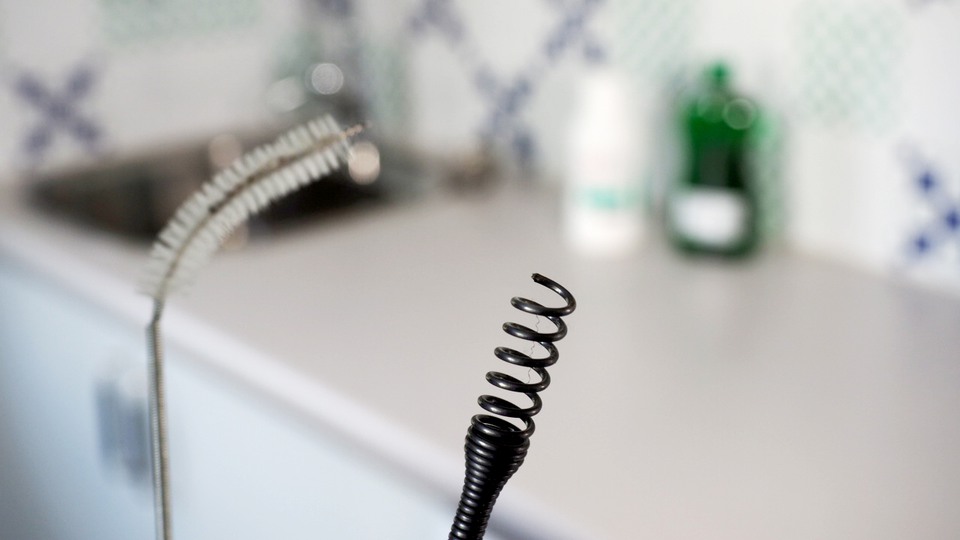Questions and answers about drain cleaners
Every year, both children and adults are severely injured from corrosive (caustic) drain cleaners. To help reduce these accidents, consumers will be required from 1 January 2025 to apply for permits to purchase and use these products. We have compiled questions and answers about drain cleaners and what the new permit requirement may entail for consumers.

There are many good alternatives to unclog drains.
There has been a rise in accidents involving corrosive drain cleaners among consumers. These accidents can lead to severe burns to the skin, eyes, mouth, throat, oesophagus and stomach. Some people suffer lifelong injuries. Many other highly corrosive products already require permits for purchase by consumers.
Starting on 1 January 2025, you may not use or purchase corrosive drain cleaners without a permit from your County Administrative Board. There are alternatives to corrosive drain cleaners that can be used instead.
Yes, there are. For example, certain products for cleaning ovens and decking/facades. However, there are not nearly as many accidents associated with these products as there are with corrosive drain cleaners. Children are also not as affected as they are with drain cleaners.
Persons using drain cleaners can be exposed to corrosive splashes if it reacts with hot water and begins to boil explosively in the drain. Splashes to the eyes can lead to permanent visual impairment. Steam and dust can be breathed in and lead to severe burns in the respiratory tract. If you take apart a water trap containing drain cleaner, you can suffer severe burns to the skin.
Children are most often exposed by ingestion. They can suffer very severe burns to the mouth, oesophagus and stomach, which can lead to lifelong injuries. Every fifth person injured by corrosive drain cleaners is a child under 10 years of age.
File an application with your County Administrative Board. You must be at least 18 years of age. You must demonstrate a need for the product, in which there is no other alternative, for an artistic, technical, scientific or similar purpose. The application fee is SEK 870 and the County Administrative Board should notify of a decision within eight weeks. The County Administrative Board grants permits for a maximum of five years. From 1 January 2015 onwards, anyone using corrosive drain cleaners must have a permit. You can therefore not purchase these products for friends or neighbours.
You may not use corrosive drain cleaners without a permit after 1 January 2025. An offence is considered as unauthorised environmental activity, for which the penalty is fines or imprisonment for up to two years.
The heating, ventilation and sanitation engineering industry do not use chemical drain cleaners and consider that the mechanical alternatives are more effective and reliable.
There are many things we can do to reduce the risk of drain blockages. Hot water and drain hair catchers are two of these. We offer some practical advice here.
There are other alternatives to corrosive drain cleaners that you can try apart from mechanical methods. If these don’t unclog the blockage, you can flush out the drain manually or, for more difficult blockages, hire a plumber or a flushing truck.
Corrosive drain cleaners can be used until 1 January 2025. If you choose to use the products, it is important that you follow the instructions for use provided on the packaging and that you pay particular attention to storing the product out of the reach of children to help prevent accidents.
If you would instead like to throw them away, corrosive drain cleaners are sorted as hazardous waste and deposited at municipal waste facilities.
It will have the corrosive hazard symbol along with the message: Causes severe burns to the skin and eyes. Here are the different hazard symbols.
Drain cleaners can corrode the material that the pipes are made of or the protective plastic film that is used on the inside of main lines.
